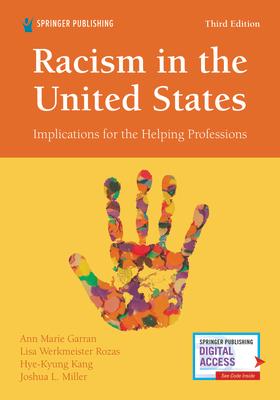The only comprehensive book on racism for human service students and professionals; this book addresses all forms of racism from an historical, theoretical, institutional, interpersonal and professional perspective. This text discusses how racism can be dealt with in clinical, communal and organizational contexts. The third edition encompasses a wealth of vital new scholarship on the perpetually changing contours of racism and strategies to confront it. Fulfilling NASW and CSWE cultural competency requirements, this book teaches socially-just practices to helping professionals from any discipline.
Using coloniality and other critical theories as a conceptual framework, the text analyzes all levels of racism: structural, personal, interpersonal, professional, and cultural. It features the contributions of a new team of authors and scholars; new conceptual and theoretical material; a new chapter on immigration racism and updated content to reflect how racism and white supremacy are manifested today; and new content on the impact of racism on economics, technology, and environmental degradation; expanded sections on slavery; current political manifestations of racism and much more. The new edition provides in-depth multilevel complex exploration and includes varied perspectives that will be meaningful for anyone involved in human services. Readers appreciate the book's sensitive, complex and multidimensional approach to this difficult topic. Purchase includes digital access for use on most mobile devices or computers.
New to the Third Edition:
- Integrates the perspectives and insights of two new expert authors.
- Includes a new chapter on the root causes for the increased flow of migrants, displaced people, and refugees and the impact of racism on their lives; and discusses the rise of fascism and white supremacy along with the confluence of racism and COVID-19.
- Includes a new model of dialogue, "Critical Conversations," which offers a roadmap for facilitating productive conversations on race and racism.
- Presents updated coverage of the killings of young people of color by law enforcement.
- Offers a detailed examination of the Trump era and the impact of Obama presidency on the dynamics of racism.
- Provides practical applications which include exercises that explore social group and intersectional identities, stereotypes, microaggressions, organizational audits, and structural oppression.
Key Features:
- Addresses how racism is part of the DNA of human services organizations and provides strategies for facilitating change
- Explains how professionals can resist racism and serve as anti-racism activists
- Provides practical applications and exercises in each chapter
- Includes instructor's manual, links to relevant podcasts and additional resources, and PowerPoint outlines for each chapter
